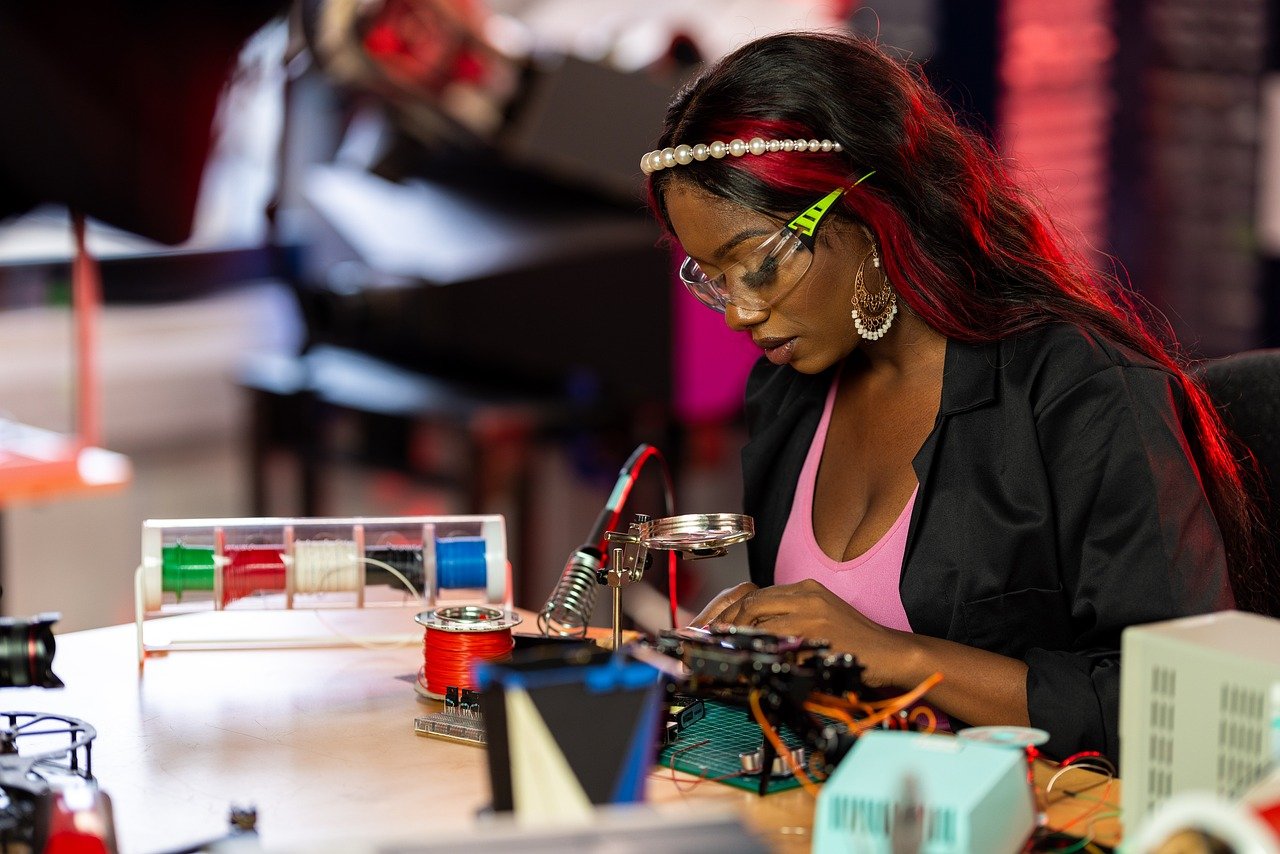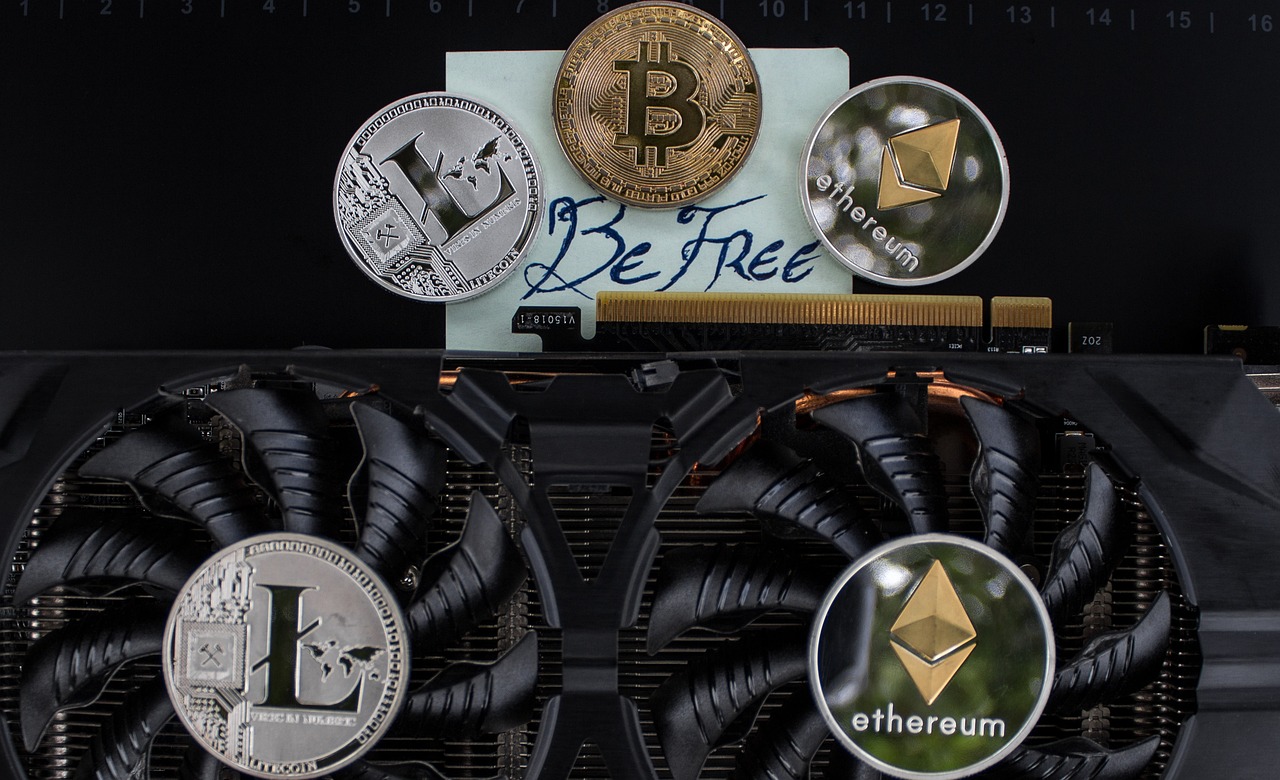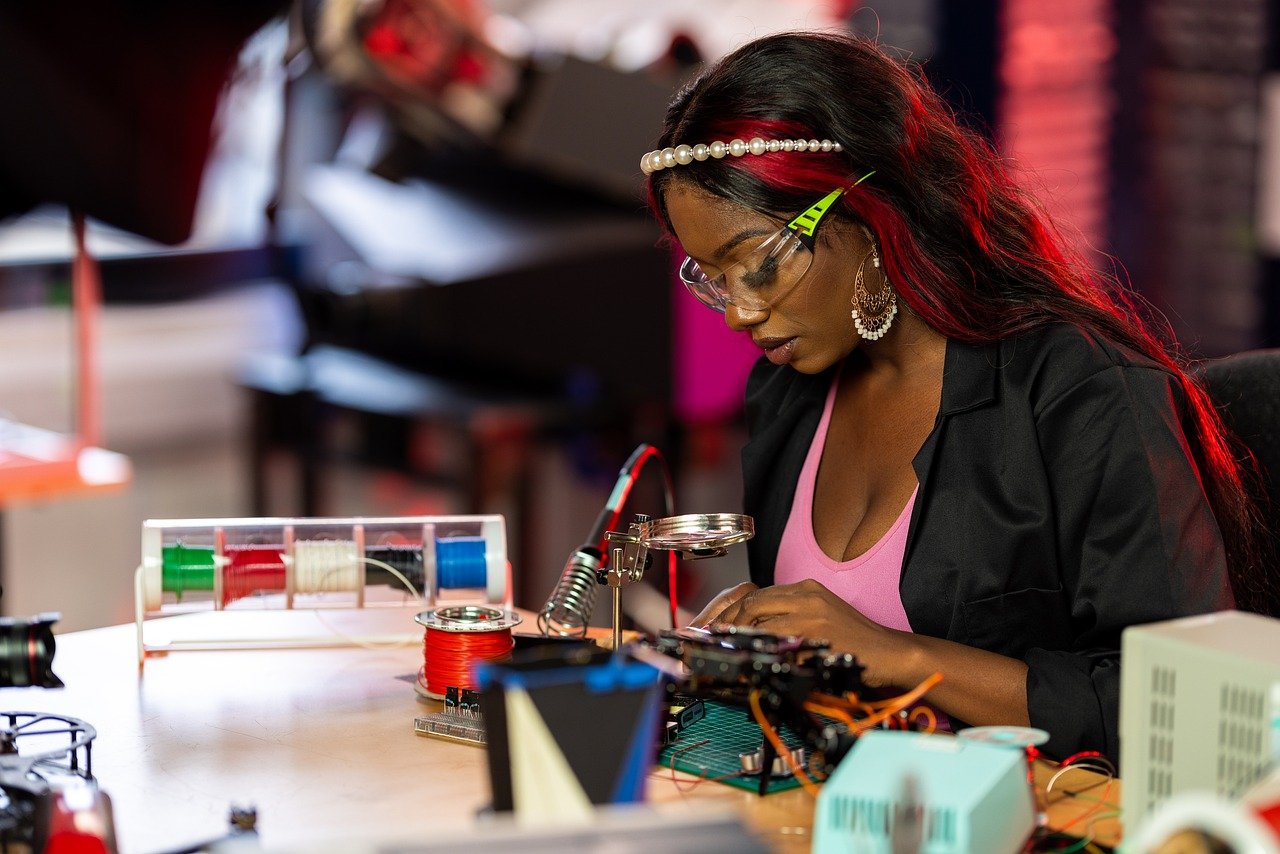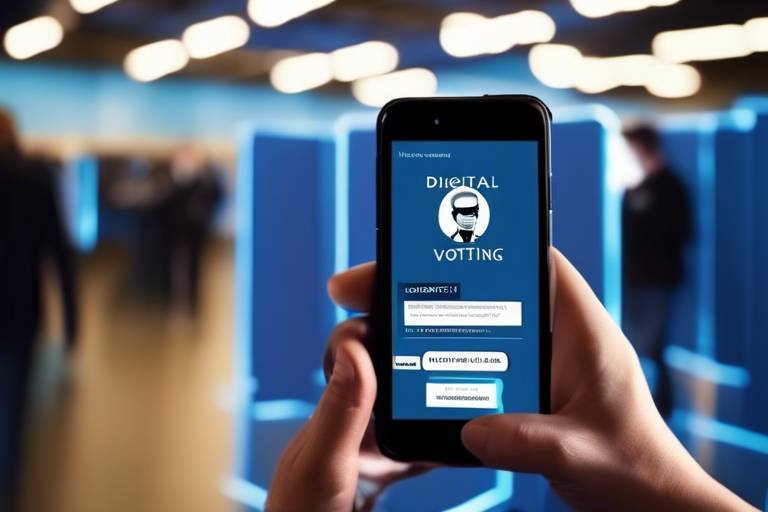How Blockchain is Transforming the Landscape of Social Media
In today’s digital age, social media platforms are ubiquitous, connecting billions of users worldwide. However, with great power comes great responsibility, and many users are increasingly concerned about their privacy and data security. Enter blockchain technology, a game-changer that is not only enhancing user experience but also revolutionizing the very foundation of social media. Imagine a world where you have complete control over your data, where your content is protected, and where you can interact with others without the fear of being exploited. This is the promise of blockchain, and it’s reshaping the landscape of social media as we know it.
Decentralized social networks are emerging as exciting alternatives to traditional platforms like Facebook and Twitter. These networks prioritize user control and data ownership, allowing individuals to manage their own information rather than handing it over to corporate giants. Think of it as a community garden versus a corporate farm; in the garden, everyone has a say in what gets planted and harvested, while in the farm, decisions are made far away, often without considering the needs of the individual. The advantages of decentralized networks are numerous:
- User Empowerment: Users have full control over their data.
- Privacy Protection: Data is encrypted and stored securely.
- Community Engagement: Users can participate in governance and decision-making.
By challenging the status quo, these platforms are not just providing alternatives; they are creating a movement towards a more equitable and user-centric social media experience.
One of the primary concerns for users on traditional social media is the risk of data breaches and unauthorized access. Blockchain technology addresses these issues head-on. With its encrypted and immutable data storage, users can rest easy knowing their information is secure. Imagine sending a letter sealed in a tamper-proof envelope; that’s how blockchain protects your data. Each transaction or piece of information is recorded in a way that cannot be altered or deleted, ensuring that your privacy is maintained.
Moreover, the decentralized nature of blockchain means that there is no single point of failure, making it significantly more difficult for hackers to compromise systems. This level of security not only protects users but also builds trust in the platforms that adopt these technologies.
For creators, blockchain offers a revolutionary way to maintain ownership of their content. Traditionally, when you post something on social media, you relinquish your rights to that content. With blockchain, however, you can retain full ownership, allowing for direct monetization through smart contracts and tokens. This means that creators can earn revenue without relying on the traditional advertising model, which often leaves them with a fraction of the profits.
Imagine being able to sell your artwork directly to fans without a middleman taking a cut. That’s the power of blockchain in social media, where creators can set their own prices and terms, leading to a more sustainable and rewarding ecosystem.
Advertising on social media has often been shrouded in mystery, with users unsure of how their data is being used. Blockchain changes this by promoting transparency in advertising. Users can verify ad placements and interactions, leading to a more trustworthy environment. When users know that they can see where their information goes and how it’s used, they are more likely to engage with advertisements, creating a win-win situation for both users and advertisers.
In an era where misinformation spreads like wildfire, blockchain can act as a safeguard against fake news. By utilizing decentralized verification systems, social media platforms can authenticate the information shared among users. This not only enhances content credibility but also empowers users to make informed decisions. Think of it as having a personal fact-checker for every post you see; it’s a powerful tool for ensuring that the information you consume is accurate.
Tokens and cryptocurrencies are becoming integral to the social media ecosystem, facilitating transactions and incentivizing user engagement. Imagine earning tokens for every post you make or every like you receive; this is not just a dream but a reality made possible by blockchain. These tokens can be used within the platform or exchanged for real-world currency, creating a new economic model that rewards user participation.
Blockchain fosters community governance through decentralized decision-making processes. This means that users are not just passive consumers but active participants in shaping the platforms they use. By allowing users to vote on changes and policies, platforms become more accountable and responsive to their communities. It’s like having a town hall meeting where everyone has a say; this level of engagement can lead to more vibrant and dynamic online communities.
One of the most exciting implications of blockchain is its ability to enable interoperability among various social media platforms. This means that users can seamlessly share content and migrate between platforms without losing their data or connections. Imagine a world where you can easily hop from one social network to another without the hassle of starting from scratch. This interconnected landscape enhances user experience and fosters a sense of community across platforms.
As blockchain technology continues to evolve, its potential impact on social media is immense. We can speculate on future developments that may further reshape user experiences and platform dynamics. Will we see more user-centric models? Will advertising become more ethical and transparent? The possibilities are endless, and the future looks bright for a more decentralized and equitable social media landscape.
- What is blockchain technology? Blockchain is a decentralized digital ledger that records transactions across many computers in a way that the registered information cannot be altered retroactively.
- How does blockchain enhance user privacy? Blockchain uses encryption and decentralized storage to protect user data, making it more secure against breaches.
- Can creators really monetize their content? Yes! With blockchain, creators can maintain ownership of their content and use smart contracts to facilitate direct payments.
- What role do tokens play in social media? Tokens can be used for transactions within platforms and incentivize user engagement, creating a new economic model.

The Rise of Decentralized Social Networks
In recent years, we’ve witnessed a significant shift in the way we interact online, with the emergence of decentralized social networks taking center stage. Unlike traditional platforms that operate on centralized servers, these innovative networks prioritize user control and data ownership. Imagine a world where your posts, photos, and connections are not controlled by a single entity, but instead, belong entirely to you. This is precisely what decentralized social networks aim to achieve, and they’re doing it by leveraging the power of blockchain technology.
So, what’s driving this rise? For starters, users are becoming increasingly aware of their digital footprints and the implications of sharing personal data on conventional social media platforms. The infamous data breaches and privacy scandals have left many feeling vulnerable and distrustful. Consequently, decentralized networks are stepping in to offer a refreshing alternative, giving users the ability to control their own data and decide who has access to it.
These networks operate on the principle of user empowerment. Instead of being mere consumers of content, users are transformed into active participants in their online communities. They can create, share, and monetize their content without the interference of corporate overlords. This shift not only enhances user experience but also fosters a sense of community and connection among users. Think of it as a digital neighborhood where everyone has a say, and no one can dictate the rules.
One of the most appealing aspects of decentralized social networks is their potential to disrupt the status quo. By utilizing blockchain technology, these platforms can provide features that traditional networks simply can’t match. Here are a few advantages that set decentralized networks apart:
- Data Ownership: Users retain full ownership of their content, ensuring that they can profit from their creativity.
- Enhanced Privacy: With encrypted data storage, users can feel secure knowing their information is protected.
- Community Governance: Users have a voice in decision-making processes, promoting accountability and transparency.
This is not just a trend; it’s a movement towards a more equitable and user-centric model of social interaction. As these decentralized platforms continue to grow in popularity, they are challenging the dominance of traditional social media giants. The question remains: will these new networks be able to sustain their momentum and attract a broader audience? Only time will tell, but one thing is for sure—users are ready for change, and decentralized social networks are leading the charge.
In conclusion, the rise of decentralized social networks signifies a pivotal moment in the evolution of social media. By prioritizing user control, privacy, and community engagement, these platforms are not only reshaping how we connect online but also redefining the very essence of social media itself. As we move forward, it will be fascinating to see how these networks evolve and what impact they will have on our digital lives.

User Privacy and Data Security
In today's digital age, where our lives are intertwined with social media, the importance of user privacy and data security cannot be overstated. Traditional social media platforms often leave users vulnerable to data breaches, unauthorized access, and exploitation of personal information. However, with the advent of blockchain technology, we are witnessing a paradigm shift that enhances the way we think about privacy and security online.
Blockchain technology operates on a decentralized network, meaning that instead of storing data on a single server, information is distributed across multiple nodes. This structure inherently reduces the risk of data breaches, as there is no single point of failure. Imagine a vault that is not just locked but is spread out across a city, making it nearly impossible for a thief to access all the locks at once. This is what blockchain does for your personal data—it makes it much harder for hackers to compromise your information.
Moreover, blockchain utilizes encryption to protect user data. When information is stored on the blockchain, it is encrypted using advanced cryptographic techniques, ensuring that only the intended parties can access it. This means that even if someone were to intercept the data, it would be nearly impossible for them to decipher it without the correct keys. Think of it as sending a secret message in a code that only you and your best friend understand. This level of security is a game-changer for users who prioritize their privacy.
Another significant aspect of blockchain technology is its immutability. Once data is recorded on the blockchain, it cannot be altered or deleted. This feature provides a verifiable and permanent record of transactions, which can significantly reduce instances of fraud and misinformation. For users, this means that their digital footprints are protected, and they have more control over how their information is used. In a world where misinformation spreads like wildfire, having a reliable source of truth is invaluable.
To illustrate the impact of blockchain on user privacy and data security, consider the following table:
| Feature | Traditional Social Media | Blockchain-Based Social Media |
|---|---|---|
| Data Ownership | Controlled by the platform | User retains ownership |
| Data Breach Risk | High | Low |
| Data Modification | Can be altered by the platform | Immutable once recorded |
| Privacy Control | Limited | Enhanced through encryption |
With these advancements, users can engage with social media platforms without the constant fear of their data being exploited. Furthermore, blockchain empowers users to participate in the governance of their platforms, fostering a sense of community and shared responsibility for data security. Users can vote on policies regarding data usage and privacy settings, making them active participants rather than passive consumers.
As we move forward, the integration of blockchain technology into social media will likely lead to a more secure and user-centric online environment. The benefits of enhanced privacy and data security are becoming increasingly clear, and as users, we must advocate for these changes to protect ourselves in an ever-evolving digital landscape.
- How does blockchain enhance user privacy? Blockchain uses encryption and decentralization to secure user data, making it less vulnerable to breaches.
- What is data immutability? Data immutability means that once information is recorded on the blockchain, it cannot be altered or deleted, providing a permanent record.
- Can I control my data on blockchain-based social media? Yes, users retain ownership and control over their data, unlike traditional platforms where the platform controls user data.
- What are the risks associated with traditional social media? Risks include data breaches, unauthorized access to personal information, and lack of control over how data is used.

In the age of digital content creation, one of the most pressing concerns for creators is ownership. Traditional social media platforms often exploit user-generated content, leaving creators with little to no control over their work. However, with the advent of blockchain technology, this paradigm is shifting dramatically. Blockchain provides a robust framework that allows creators to maintain full ownership of their content, ensuring that they are not just passive participants in the digital economy but active stakeholders.
Imagine a world where every piece of art, music, or writing you create is securely stored on a blockchain. This means that your content is not only immutable but also easily traceable. Each time someone uses your work, you can receive direct compensation through smart contracts—self-executing contracts with the terms of the agreement directly written into code. This not only streamlines the payment process but also removes the need for intermediaries, allowing creators to keep a larger share of their earnings.
Moreover, the introduction of tokens and cryptocurrencies within social media platforms creates a new economy where users can support their favorite creators directly. For instance, platforms like Steemit and Publish0x reward users with tokens for their contributions, whether it's writing articles, sharing content, or engaging with other users. This model not only incentivizes quality content but also fosters a sense of community and collaboration among users.
To illustrate this transformative potential, consider the following table that compares traditional monetization models with blockchain-based systems:
| Aspect | Traditional Model | Blockchain Model |
|---|---|---|
| Content Ownership | Platform owns user content | User retains full ownership |
| Revenue Share | Low percentage to creators | Higher percentage to creators |
| Payment Process | Involves intermediaries | Direct payments via smart contracts |
| Incentives | Limited rewards for engagement | Token rewards for participation |
As you can see, the blockchain model not only empowers creators but also transforms the entire economic landscape of social media. This shift towards decentralization means that creators are no longer at the mercy of corporate giants; instead, they can cultivate their own audiences and monetize their work in innovative ways. With the ability to directly engage with their supporters, creators can build loyal communities that value their contributions and support their endeavors.
In conclusion, the intersection of content ownership and monetization through blockchain technology is a game changer for digital creators. It offers a sustainable and fair model that prioritizes the rights and rewards of those who produce content. As we move forward, embracing these new tools and frameworks will be essential for anyone looking to thrive in the evolving landscape of social media.
- What is blockchain technology? Blockchain is a decentralized ledger that securely records transactions across a network of computers.
- How does blockchain enhance content ownership? It allows creators to maintain control and ownership of their work, ensuring they benefit from their contributions.
- What are smart contracts? Smart contracts are self-executing contracts with the agreement's terms directly written into code, enabling automated transactions.
- Can I monetize my content on blockchain platforms? Yes, many blockchain-based platforms provide mechanisms for creators to earn tokens or cryptocurrencies for their work.

In the ever-evolving world of digital marketing, advertising transparency has become a crucial factor for both consumers and brands. Traditional social media platforms often operate in a black box, leaving users unaware of how their data is used or how advertisements are targeted. This lack of transparency breeds distrust, making users skeptical of the authenticity of the content they encounter. However, with the advent of blockchain technology, this paradigm is shifting dramatically.
Blockchain’s decentralized nature allows for a level of transparency that was previously unattainable. By recording every transaction on a public ledger, blockchain enables users to verify ad placements and interactions. This means that users can see not only where their data is going but also how it is being utilized in advertising campaigns. Imagine a world where you can track the journey of an ad from its conception to its display on your feed. This level of visibility fosters a sense of trust and accountability between users and brands.
Furthermore, the implementation of smart contracts on blockchain platforms can automate and enforce advertising agreements. For instance, if an ad is not displayed as promised, the smart contract can automatically refund the advertiser. This not only protects advertisers from fraud but also ensures that users are not bombarded with irrelevant or misleading ads. The result? A more engaged audience that feels valued rather than exploited.
To illustrate the potential impact of blockchain on advertising transparency, consider the following table:
| Traditional Advertising | Blockchain Advertising |
|---|---|
| Lack of visibility into ad placements | Public ledger showing ad placements |
| High susceptibility to fraud | Smart contracts reduce fraud risk |
| Users unaware of data usage | Users can track data utilization |
| Trust issues with brands | Increased trust through transparency |
Moreover, with blockchain, brands can create more targeted and relevant advertisements. By analyzing the data stored on the blockchain, advertisers can gain insights into user preferences without compromising individual privacy. This leads to a win-win situation: users receive ads that resonate with their interests, while brands benefit from higher engagement rates and conversions.
In conclusion, as blockchain technology continues to mature, its role in enhancing advertising transparency and trust will become increasingly significant. By empowering users with information and fostering a transparent advertising ecosystem, blockchain not only revolutionizes how brands connect with their audiences but also restores faith in digital advertising. With trust at the forefront, the future of advertising could very well be a landscape where users feel respected and valued.
- What is blockchain technology?
Blockchain is a decentralized digital ledger that records transactions across multiple computers, ensuring that the data cannot be altered retroactively without the consensus of the network.
- How does blockchain enhance advertising transparency?
Blockchain provides a public ledger that allows users to verify ad placements and interactions, fostering trust between users and brands.
- What are smart contracts?
Smart contracts are self-executing contracts with the terms of the agreement directly written into code, allowing for automated enforcement of contract terms.
- Can blockchain combat advertising fraud?
Yes, by utilizing smart contracts and transparent data tracking, blockchain significantly reduces the risk of fraud in advertising.

In today's digital age, the spread of fake news and misinformation has become a pressing concern for social media users and platforms alike. With the rapid dissemination of information at our fingertips, it’s easy to see how misleading content can go viral, affecting public opinion and even influencing elections. However, blockchain technology offers a revolutionary solution to this pervasive issue. By leveraging its decentralized nature, blockchain can provide a robust framework for verifying the authenticity of information shared across social media.
Imagine a world where every piece of information shared on social media is traceable to its original source, much like a digital fingerprint. This is where blockchain shines. Each post, tweet, or article can be timestamped and recorded on a blockchain, creating an immutable record that users can reference to verify the content's legitimacy. This not only helps in identifying the origin of the information but also holds users accountable for sharing unverified content. The transparency that blockchain provides can significantly reduce the prevalence of fake news and misinformation.
One of the most exciting aspects of this technology is its ability to facilitate decentralized verification systems. These systems can involve a community of users who collectively assess the credibility of information. For instance, if a news article is posted, users can contribute to a verification process, providing evidence or counter-evidence that gets recorded on the blockchain. This communal effort fosters a sense of responsibility among users while also enhancing the overall credibility of the information being shared.
To further illustrate this, consider the following potential benefits of using blockchain to combat misinformation:
- Traceability: Each piece of content can be traced back to its source, making it easier to identify false information.
- Community Engagement: Users become active participants in the verification process, promoting a culture of accountability.
- Immutable Records: Once information is verified, it cannot be altered, ensuring that the truth remains intact.
- Incentives for Truthfulness: Users who contribute to the verification process can be rewarded with tokens, encouraging participation.
Moreover, the integration of blockchain with artificial intelligence can enhance the detection of fake news. AI algorithms can analyze patterns and flag suspicious content, which can then be verified through the blockchain system. This combination not only speeds up the verification process but also ensures that users receive accurate information swiftly.
As we look to the future, it's clear that blockchain has the potential to revolutionize how we consume and share information on social media. By creating a more trustworthy environment, users can engage in discussions with confidence, knowing that the information they are accessing is credible. This shift can lead to a more informed public, ultimately fostering healthier conversations and a more robust democratic process.
- How does blockchain ensure the authenticity of information? Blockchain creates an immutable record of information that can be traced back to its source, making it easier to verify claims.
- Can users participate in the verification process? Yes! Blockchain enables community engagement, allowing users to contribute to the verification of content.
- What role does AI play in combating fake news? AI can analyze content and flag suspicious information, which can then be verified through blockchain technology.
- Are there incentives for verifying information? Users can be rewarded with tokens for their participation in the verification process, promoting accountability.

In the rapidly evolving landscape of social media, tokens and cryptocurrencies are emerging as vital components that redefine how users engage with platforms. Imagine a world where your social media interactions are not just passive engagements but actual economic transactions. That's the power of blockchain technology! By integrating tokens and cryptocurrencies, social media platforms are not only enhancing user experience but also creating entirely new economic models that empower users and content creators alike.
So, how do these tokens work? Essentially, they act as a form of currency within the platform. Users can earn tokens through various activities such as creating content, engaging with posts, or even participating in community governance. This means that your time and effort spent on social media can translate into real-world value. For instance, a content creator could receive tokens directly from their followers as a way of appreciation, allowing for a more personal and rewarding interaction.
Moreover, these tokens can be traded or converted into other cryptocurrencies, providing users with flexibility and control over their digital assets. This shift not only incentivizes quality content creation but also fosters a sense of community among users who are financially invested in the platform. To illustrate this, consider the following table that outlines some of the benefits of using tokens and cryptocurrencies in social media:
| Benefits | Description |
|---|---|
| User Empowerment | Users can earn tokens for their contributions, giving them a stake in the platform. |
| Direct Monetization | Creators can monetize their content directly without intermediaries. |
| Enhanced Engagement | Tokens incentivize users to engage more actively with content. |
| Interoperability | Tokens can often be used across different platforms, enhancing user experience. |
Additionally, cryptocurrencies enable seamless transactions. Users can tip their favorite creators in real-time or purchase exclusive content using these digital currencies. This immediacy not only enhances user satisfaction but also creates a more dynamic and engaging ecosystem. Imagine scrolling through your feed and instantly rewarding a creator for their work with a simple click—this is the future that blockchain promises.
However, with great power comes great responsibility. The rise of tokens and cryptocurrencies also necessitates a robust framework to ensure security and transparency. Users must be educated about how to manage their digital assets safely, as well as the potential risks involved in cryptocurrency transactions. Platforms are beginning to implement measures to protect users, such as secure wallets and educational resources, to help navigate this new terrain.
In conclusion, the role of tokens and cryptocurrencies in social media is not just a passing trend; it's a fundamental shift that has the potential to revolutionize how we interact online. By creating economic incentives and fostering community engagement, these digital assets are paving the way for a more inclusive and rewarding social media experience. As we move forward, it will be fascinating to see how these elements continue to develop and shape the future of our online interactions.

The concept of community governance in the realm of social media is undergoing a **transformative shift** thanks to blockchain technology. Traditionally, social media platforms have operated under a centralized model, where a handful of corporations controlled user data, content moderation, and the overall user experience. However, with the advent of blockchain, we are witnessing a rise in decentralized social networks that empower users to take back control. Imagine a world where users not only consume content but also shape the platform's rules and policies. This is no longer a distant dream; it's becoming a reality.
One of the most exciting aspects of blockchain is its ability to facilitate **transparent decision-making** processes. Through the use of smart contracts and decentralized applications (dApps), users can participate directly in governance decisions. This means that instead of a corporate board making decisions behind closed doors, the community can vote on important issues, from content moderation policies to platform upgrades. This participatory approach not only fosters a sense of ownership among users but also enhances **accountability**. After all, when users have a say in how the platform operates, they are more likely to feel invested in its success.
Moreover, community governance can significantly enhance user engagement. When users feel that their voices matter, they are more likely to contribute positively to the platform. This could involve creating content, reporting issues, or even helping to moderate discussions. In a decentralized social network, every user has the opportunity to be a stakeholder, which can lead to a more vibrant and active community. For instance, users could earn tokens for their contributions, incentivizing them to participate more actively in governance processes.
To illustrate how community governance can work in a blockchain-based social media platform, consider the following table that outlines potential governance structures:
| Governance Model | Description | Benefits |
|---|---|---|
| Direct Voting | Users vote on key decisions affecting the platform. | Increased transparency and user trust. |
| Delegated Voting | Users elect representatives to make decisions on their behalf. | Streamlined decision-making while maintaining user input. |
| Consensus Mechanisms | Decisions are made based on consensus among users. | Encourages collaboration and community building. |
As we look to the future, the potential for **community governance** in social media is immense. It not only empowers users but also creates a more equitable platform where everyone has a stake in its success. Imagine a platform where the community comes together to create a safe, inclusive, and engaging environment. This is what blockchain promises—a new era of social media where users are not just passive consumers but active participants in shaping their digital landscape.
- What is community governance in social media? Community governance refers to the process where users have a say in the decision-making and policies of a social media platform, often facilitated by blockchain technology.
- How does blockchain enhance user participation? Blockchain enables transparent and secure voting mechanisms, allowing users to directly influence platform governance and policies.
- What are the benefits of decentralized governance? Decentralized governance promotes accountability, enhances user engagement, and fosters a sense of community ownership.
- Can users earn rewards for participation? Yes, many blockchain-based platforms offer tokens or other incentives for users who contribute to governance or community activities.

Imagine a world where you can seamlessly share your thoughts, photos, and videos across various social media platforms without the hassle of logging in and out or duplicating content. Cross-platform interoperability enabled by blockchain technology is paving the way for this reality. The idea is simple yet revolutionary: users can engage with multiple social networks through a single identity, enhancing user experience and fostering greater community interaction.
At the core of this interoperability is the ability of blockchain to create a shared and immutable ledger. This means that your data is not confined to one platform; instead, it can be accessed and utilized across different networks. For instance, if you post a stunning travel photo on one platform, your friends on another can see it without you needing to upload it again. This not only saves time but also enriches the way we connect and communicate online.
Moreover, this interconnectedness can lead to a more vibrant social media ecosystem. Users can migrate their content and followers from one platform to another effortlessly. This migration is particularly beneficial for creators and influencers who often find themselves at the mercy of algorithm changes and platform policies. With blockchain, they can retain control over their audience and content, no matter where they go. The implications for content creators are profound, as they can build a loyal following that isn’t tied to a single social network.
However, the journey towards cross-platform interoperability is not without its challenges. Issues such as data privacy, security, and the varying governance models of different platforms must be addressed. It requires a collaborative effort among developers, platform owners, and users to establish standards that ensure seamless integration while protecting user rights.
In summary, the potential for cross-platform interoperability in social media through blockchain technology is enormous. It offers users the freedom to navigate the digital landscape with ease while fostering a more connected and dynamic online community. As we move forward, embracing this change could redefine our social interactions and the very fabric of online communication.
- What is cross-platform interoperability?
Cross-platform interoperability refers to the ability to use a single identity to engage with multiple social media platforms, allowing seamless sharing and interaction. - How does blockchain facilitate this interoperability?
Blockchain creates a shared and immutable ledger that allows data to be accessed across different platforms, enabling users to migrate content and followers easily. - What are the benefits of cross-platform interoperability?
Users can save time, enhance community interaction, and maintain control over their content and audience, regardless of platform changes. - What challenges does cross-platform interoperability face?
Challenges include ensuring data privacy, security, and establishing standards for seamless integration across different platforms.

As we look ahead, the future of social media intertwined with blockchain technology appears not just promising, but revolutionary. Imagine a world where your digital identity is entirely yours, where you have the power to control your data, and where your interactions online are both secure and transparent. This is not just a fantasy; it’s on the horizon as blockchain continues to evolve and integrate into social media platforms.
One of the most exciting prospects is the potential for user-centric platforms. Traditional social media has often prioritized corporate interests over user needs. However, decentralized networks built on blockchain can flip this model on its head. Users will have the ability to shape their environments, decide what content is valuable, and even influence the direction of the platform itself. This democratization of social media could lead to a more engaged and active user base, fostering communities that are not just consumers but also contributors.
Additionally, as blockchain matures, we can expect to see a surge in innovative monetization strategies. The integration of cryptocurrencies and tokens will allow creators to earn directly from their audience without intermediaries taking a hefty cut. This could shift the dynamics of how content is valued. For instance, instead of relying on ad revenue, creators might receive tokens from their followers as a form of appreciation, similar to tipping in real life. This creates a more personal and direct relationship between creators and their audience.
Moreover, the interoperability that blockchain offers will revolutionize how we interact across platforms. Imagine being able to seamlessly share content from one social network to another without losing ownership or context. This interconnectedness will not only enhance user experience but also allow for a more fluid exchange of ideas and creativity. The barriers that currently exist between different social media sites could become a thing of the past.
Of course, with great power comes great responsibility. As social media platforms evolve, so too will the challenges. Issues related to scalability, user education, and regulatory compliance will need to be addressed. Users will need to understand how to navigate these new environments safely and effectively. Moreover, as platforms become more decentralized, the responsibility for maintaining a safe and respectful community will shift significantly onto the users themselves.
In conclusion, the future of social media with blockchain is not just about technology; it’s about transforming the very essence of our online interactions. It’s about creating spaces where users feel empowered, valued, and in control. As we continue to explore this exciting frontier, one thing is clear: the landscape of social media is on the brink of a profound transformation, and we are all invited to be a part of it.
- What is blockchain technology?
Blockchain is a decentralized digital ledger that records transactions across many computers so that the record cannot be altered retroactively without the alteration of all subsequent blocks and the consensus of the network.
- How does blockchain enhance user privacy?
Blockchain enhances user privacy by allowing users to control their data through encryption and decentralized storage, reducing the risk of data breaches.
- What are decentralized social networks?
Decentralized social networks are platforms that operate without a central authority, allowing users to retain control over their data and content.
- Can blockchain combat fake news?
Yes, blockchain can help verify the authenticity of information shared on social media by utilizing decentralized verification systems.
Frequently Asked Questions
-
What is blockchain technology and how does it relate to social media?
Blockchain technology is a decentralized digital ledger that records transactions across many computers. In the realm of social media, it enhances user privacy, security, and content ownership, fundamentally changing how users interact with platforms and each other.
-
How do decentralized social networks differ from traditional platforms?
Decentralized social networks prioritize user control and data ownership, allowing individuals to manage their information. Unlike traditional platforms, which centralize data and often monetize user content without fair compensation, decentralized networks empower users to own and profit from their contributions.
-
Can blockchain improve user privacy and data security?
Absolutely! Blockchain enhances privacy and security through encrypted, immutable data storage. This means that user data is less susceptible to breaches and unauthorized access, providing a safer online environment for everyone.
-
How does blockchain support content ownership and monetization for creators?
Blockchain allows creators to maintain ownership of their content by using smart contracts and tokens. This enables direct monetization, meaning creators can earn revenue without intermediaries taking a cut, leading to fairer compensation for their work.
-
What role does advertising transparency play in blockchain-based social media?
With blockchain, users can verify ad placements and interactions, fostering trust in advertising. This transparency can lead to more effective advertising strategies, benefiting both advertisers and users who seek authentic interactions.
-
How can blockchain help combat fake news and misinformation?
Blockchain can verify the authenticity of information shared on social media by utilizing decentralized verification systems. This process enhances content credibility and helps users distinguish between reliable sources and misinformation.
-
What are the benefits of using tokens and cryptocurrencies in social media?
Tokens and cryptocurrencies can facilitate transactions and incentivize user engagement within social media ecosystems. They create new economic models that reward users for their contributions and interactions, making the platform more dynamic and engaging.
-
How does blockchain promote community governance in social media?
Blockchain fosters community governance through decentralized decision-making processes. This allows users to participate in governance, enhancing platform accountability and ensuring that user voices are heard in shaping the platform's future.
-
What is cross-platform interoperability and why is it important?
Cross-platform interoperability allows different social media platforms to seamlessly share content and facilitate user migration. This interconnectedness can enhance user experiences and create a more cohesive social media landscape.
-
What does the future hold for social media with the integration of blockchain technology?
The future of social media with blockchain is promising, as ongoing advancements could reshape user experiences and platform dynamics. We might see even greater user empowerment, enhanced security, and innovative monetization strategies that benefit everyone involved.



















